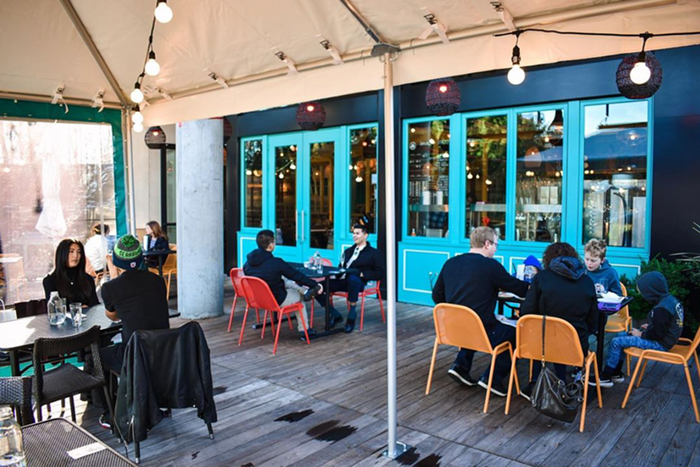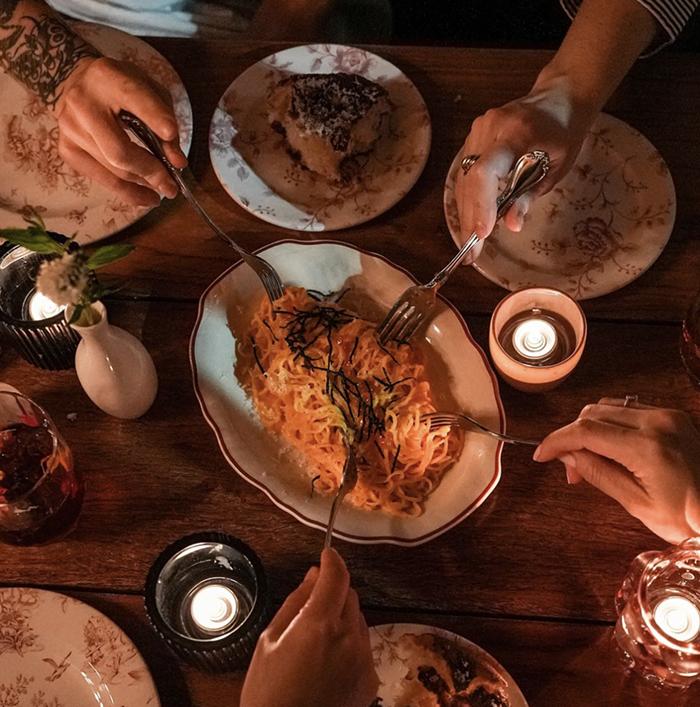The first the owners of the Silver Fork diner heard about their imminent closure was from a customer. "What's up with that sign outside?" a patron asked server Malina Bash the week before last. "What sign?" replied Bash, the granddaughter of owners Larkin and Estella Potts.
It was one of those ubiquitous white "Notice of Proposed Land Use Action" signs. The restaurant is to be demolished, the sign says, and replaced by a Safeway gas station and convenience kiosk. The landlord confirmed that the property was being sold and the lease would not be renewed; the Potts family currently plans to close down the venerable Rainier Valley institution by the end of September.
"I'm gonna miss coming down here as much as you," Larkin Potts sighed when I told him how much my daughter and I would miss the place. The Pottses' daughter Margie Johnson, who's been running the restaurant since her mother's stroke, recently told the Seattle Times that she'd been thinking of closing the restaurant anyway, but she tells me she would put in another 15 years, even relocated. "I love this place," says Johnson. "I don't want to see it go down just like that."
Many of their loyal customers—including some of Seattle's most powerful politicians—feel the same way. Some community members are rallying to find the Silver Fork a new home, while others are hoping a grassroots campaign might save their favorite breakfast spot.
You have to look beyond the menu to fully understand the Silver Fork's vital role in the community, although the menu is a good place to start. Of course there are pancakes, eggs, bacon, and other breakfast standards, but you'll also find biscuits and gravy, chicken-fried steak, and the most authentic diner grits in the city: salty and creamy, with a pool of melted butter floating atop. More upscale restaurants sometimes reference or replicate such classic fare (at more upscale prices), but the Silver Fork is the real deal, like the many post–Great Migration Southern-style diners still found in urban neighborhoods throughout the Northeast and Midwest. As an East Coast transplant, from the moment I first walked through the doors more than a decade ago and smelled the bacon on the griddle, saw the thermal coffee carafes on the tables, and heard the 1970s-era R&B playing on the speakers, I instantly felt at home, even though my daughter and I were often the only two white faces in the restaurant.
There is no other place like the Silver Fork in Seattle. It has been a central gathering place for the city's African American community almost from the day it opened some 24 years ago. "It's a community restaurant, in the truest sense," says former King County executive Ron Sims, who can often be found at a back table with King County Council member Larry Gossett. Other regulars have included Norm Rice and Gary Locke, as well as sports figures like Bill Russell and Ken Griffey Jr. "But you left your title at the door," says Sims. "You were no better or worse than anybody else. Everybody was successful. Everybody lied about their kids."
On any given morning, you might find church groups, business leaders, high-school football coaches, and other community organizers conducting business over eggs and coffee and grits. The Silver Fork is the Rainier Club of Rainier Valley—the place where important business gets done. And everybody in the place is important.
My daughter and I weren't exactly regulars, but we were regular enough that the servers knew our usual order by heart: short stack, bacon, eggs scrambled dry, side of hash browns, toasted English muffin, coffee, and a hot chocolate (no whipped cream). My favorite time to go is Sunday morning, just before the post-church rush, in time to watch the tables fill up with small, hungry children decked out in their Sunday best.
"You don't cuss in here," says Sims. "You did not cuss in front of your families. People had a code of conduct."
The latest news, though, makes it tempting to spit out a few four-letter words.
The Pottses say they had a deal to purchase the property about a decade ago, but the property owners backed out at the last minute. They'd heard talk for years that Safeway, which sits across the parking lot from the restaurant, wanted to build a gas station on the site, but they say they were never told the property was on the market, let alone given the opportunity to make a counteroffer.
Sara Osborne, the public affairs director for Safeway's Seattle division, says that a confidentiality agreement prevents her from commenting until the sale closes, but she describes her company's plan to demolish the Silver Fork as a "corporate decision based on where we have customers that want fuel."
It's an explanation that doesn't sit well with Sims, who says he plans to boycott that Safeway location. "They just lost my business," says Sims. "I won't patronize a store that would do that to a cornerstone of the community."
Sims has had complaints about Safeway underserving minority communities since he first moved to the area in the 1970s, calling Safeway's aging Othello Street store "appalling." A 1990 investigation by the Seattle Times found that store—in one of Seattle's poorest neighborhoods—had some of the highest prices in the city, describing it as "totally outdated... [with] old fixtures and small departments with no service."
Safeway has since built two "superstores" on Rainier Avenue South, and the Othello store was allegedly renovated a few years back. It got a Starbucks counter—yay—but the cramped, half-century-plus-old building is largely unchanged, and I can tell you from personal experience that the selection and service still falls far short of Safeways located in more affluent neighborhoods.
"It's Safeway sneering at the community, spitting on it," says Sims, still sore from his previous battles with the chain and newly embittered by the news of the Silver Fork's impending closure. "Safeway has never been a community place. Never, ever, in my opinion, has it been committed to the welfare of Southeast Seattle. Ever. They are telling everybody in the New Holly community: 'We don't care about you. But we'll take your money.'"
"Othello is certainly on the top of our minds," counters Osborne in defense of Safeway. "But you don't want to invest too much in a store that is already standing when it is under consideration for a new replacement store in the same community in the future."
As for the Silver Fork, can anything be done to save it? "I don't think there's anything legal to do to stop it," says Seattle City Council member Bruce Harrell. Harrell says he has reached out to the Potts family, offering to help them find the diner a new home and the financing to build it. "They have a recipe that works," says Harrell, and he's confident they could duplicate their success elsewhere in the neighborhood.
But is there time? Osborne says she thinks the permitting and planning process could take from six months to a full year, maybe longer. In the meanwhile, says Osborne, "I would think that we would want a tenant." And that at least suggests an opportunity.
While the city's comment period was set to close on August 22, it's Safeway where public pressure would likely best be applied. Osborne says she wants to talk to the Potts family, and you can e-mail her, too, at Sara.Osborne@safeway.com. Sims's cynicism aside, perhaps Safeway can be convinced that the ill will generated by demolishing the Silver Fork is not worth the profit from a new gas station. Or maybe corporate headquarters can at least be convinced to extend the Silver Fork's lease long enough to give the owners time to explore their options.
Either way, now is the time to let Safeway know that the Silver Fork is more than just another greasy diner. ![]()


















